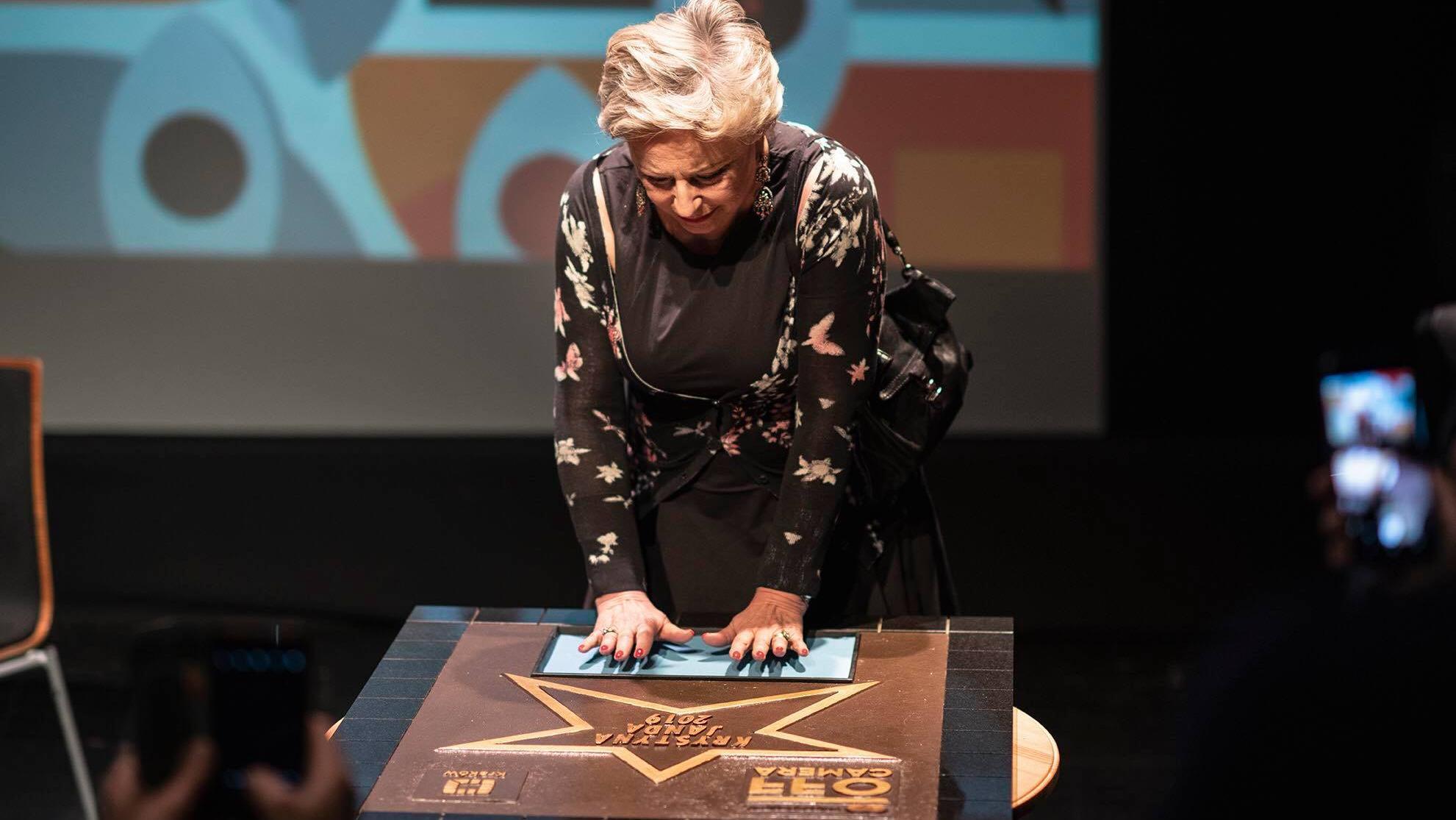
There is a film by Jacek Borcuch entitled ‘Dolce Fina Giornata’. Written by Szczepan Twardoch and his own words, masterfully painted with Daniel Bloom’s music and Michał Dymek’s photography. While watching it, we feel the smell of fresh fish mixed with cigarettes smoke smoked by Krystyna Janda. A cold breeze from the sea blows in our hair, and our mouth is full of the taste of good Italian wine.
The action place of this image is not Volterra in Tuscany, but Europe. Here, and there – depending where exactly one stands at the moment. The first plan sees a grown woman. A poet, Nobel Prize winner – Maria Linde (Krystyna Janda). Maria has it all – a husband, a daughter, grandchildren, a beautiful house on a hill. Maria also has her history – she is the daughter of Holocaust survivors, who is spending time in Italy during the introduction of martial law. There she stayed. Soon, she is to be granted her honorary city citizenship, but a terrorist attack takes place just before the ceremony and drastically reshapes what Maria will say during the ceremony. Next to Maria, but still in the center of the image, we see her daughter (Kasia Smutniak) and granddaughter (Miła Borcuch) with whom she forms the trio of rebellious women. Each of them rebels against something else, each of them speaks her own Polish-Italian tongue. With each one of them we can identify.
On the second plan we see Nazeer. Nazeer comes from Egypt. He is wise, hard-working and very handsome. Maria likes him, as she truly believes that he considers her body as one of her dresses. She also thinks he understands her soul. Maria drives her wonderful Porsche to him and sums it up in a few words: Elder years have their craziness. On the opposite side stands Antonio – Maria’s husband in his worn shoes. Antonio loves his wife very much and will do a lot for her. Even throw away his worn shoes, which Maria asks of him in a letter.
When we look at this image for a little longer, we might notice symbols hidden for us by Jacek Borcuch in his piece. The motif of the poet is long-known in art, but the motif of a female poet is a truly revolutionary! The female poet will tell us the truth – when other lie to us and trick us with political correctness. The artist exaggerates chosen issues to draw our attention to why we place particular values in a cage. The slumbering dwellers of Volterra are the face of modern European citizens who live from day to day, only to find about it when something or someone interrupts their orderly, civilized lives. Commisar Lodovici, a friend of the family in the beginning, is the embodiment of politicians known to us from TV screens, who dance around in a vicious circle. Yet, we are the ones responsible to blow the wake-up horn in the end. It all started in Italy: culture, law and religion, and entire Europe embraced it. Jacek Borcuch’s film is the starting point of a conversation about ourselves – our pains, the diseases we face and aversions. It asks grave questions, but gives no answers whatsoever. It shines a light on problems, but does not propose a solution. Excess, exaggeration – all of that for us to see how we make our choices. Not only in life.
I am positively surprised. – words uttered by Maria’s granddaughter (about Frank Sinatra’s music recommended by her grandma) seem to perfectly fit the first impression after the screening. When going to this film, the viewer rightly expects Krystyna Janda, awarded in Sundance, to play a brilliant role, just as Kasia Smutniak whom we could watch in Paolo Sorrentino’s film. What the viewer may not expect, however, is a full range of colours, sounds, images, and even smells and flavours served during only a single screening. He will be looking for words to describe this feast long after it has ended. Let him not be too sure that he will manage to name everything he has seen. The most important part is the one that remains hidden to the eyes. During the pre-premiere screening held at the 12th Mastercard OFF CAMERA, Jacek Borcuch said that ‘this is a film about freedom’. I would rather say that this ‘is an image of liberty’. An image entitled ‘Liberty Leading the People’. Liberty with the face of Krystyna Janda.
Kinga Majchrzak